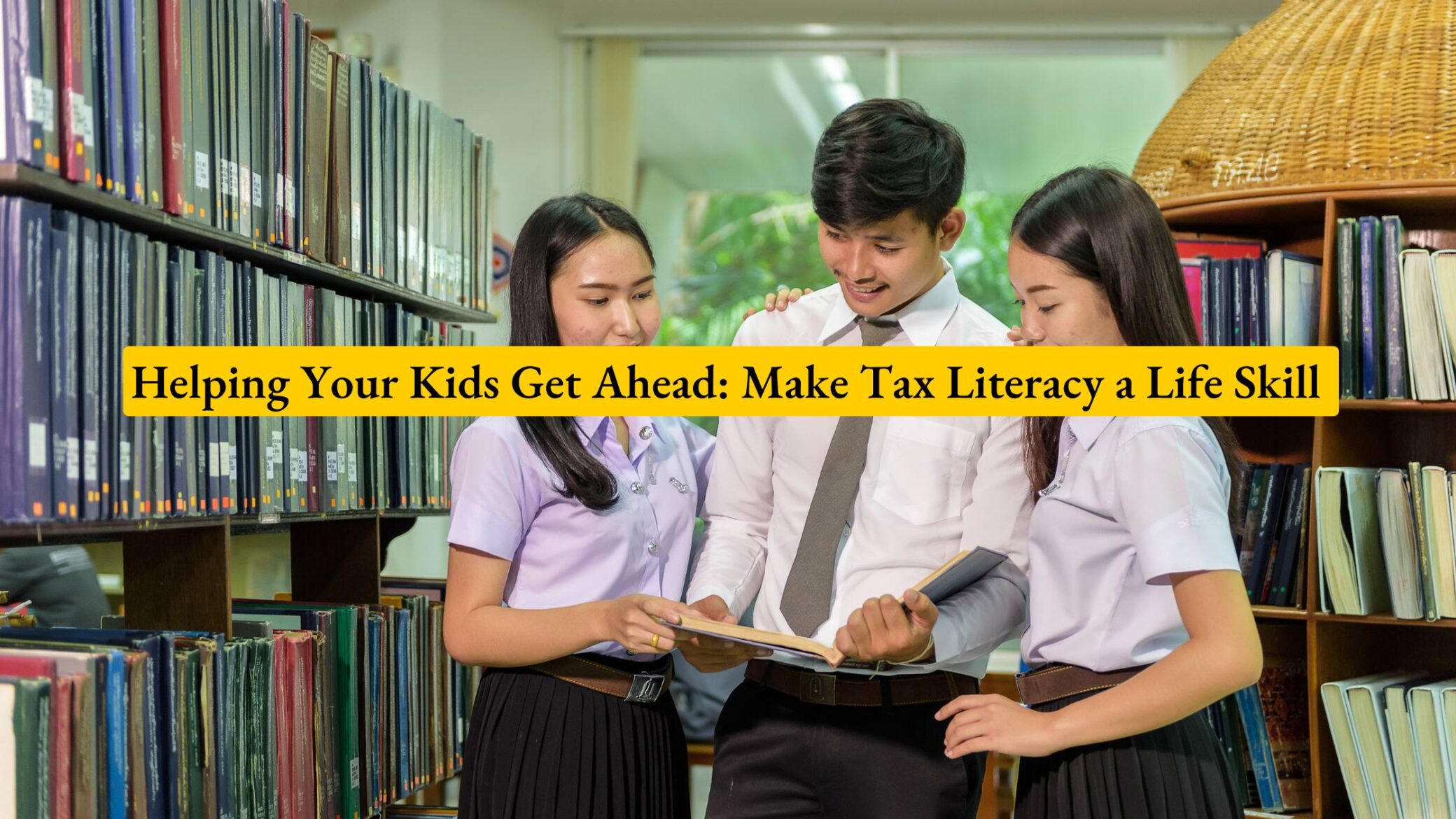Helping Your Kids Get Ahead: Make Tax Literacy a Life Skill
As the school year kicks off, many families focus on classroom supplies and new routines—but one of the most valuable lessons your child can learn won’t come from a textbook. It’s understanding how taxes work.
At Achen Henderson, we believe financial literacy—especially tax literacy—is a foundational life skill. Yet, for many Canadians, taxes remain confusing well into adulthood. Introducing basic tax concepts to young people early on is one of the most practical ways to help them prepare for the real world.
Why should you teach your kids taxes early?
For most students, the first job often comes with a paycheque—and confusion about deductions, net pay, and tax slips. Without some basic context, tax season can feel overwhelming.
By helping students learn how to read a pay stub, understand what income tax is, or even complete a basic return, we equip them to make more informed decisions from the start. And these aren’t just “school skills”—they’re skills they’ll use for life. That’s why we’re happy that the government has launched a series of tools to help Canadians get “tax smart”.
What resources does the government provide to learn about taxes?
The good news is you don’t need to be a tax expert to help. The CRA has published a range of free, accessible resources aimed at students, parents, and educators. These include:
✓ Interactive online lesson plans on basic tax topics
✓ Short, engaging videos for high school and post-secondary students
✓ A step-by-step guide to filing a return
These tools can be used at home or in the classroom, and they’re designed to simplify—not complicate—key concepts.
Are there any specific tax benefits for teachers?
Teachers play a vital role in financial education. If you’re an educator, you may be eligible for certain tax deductions—like claiming 25% of up to $1,000 for teaching supplies.
If you’ve recently relocated for work, some of your moving expenses may also be deductible, so long as the move is at least 40KMs closer to the new work location, and the deduction is applied against the income earned at the new location. Expenses like travel, transportation, temporary lodging, and legal fees for selling your home are some of the expenses which may be eligible for.
In addition, initiatives like the Learn About Your Taxes competition provide opportunities to engage your students in hands-on learning, while helping your school access additional funding.
How does a Registered Education Savings Plan (“RESP”) work?
For parents planning, a Registered Education Savings Plan (RESP) is one of the most effective tools to help fund a child’s future education. Not only do your contributions grow tax-free, but government grants can add up to $7,200 per child over time. A few key points on RESPs:
- Tax-Free Growth: Investment income earned within a RESP is not taxed as it accrues. When withdrawn as an Educational Assistance Payment (EAP), it is taxed in the hands of the student, who often has little or no other income and thus pays little or no tax.
- Government Grants: The Canada Education Savings Grant (CESG) provides 20% on the first $2,500 of annual contributions per child, up to a maximum of $500 per year, with a lifetime maximum of $7,200 per beneficiary. Additional CESG is available for lower- and middle-income families.
Recent enhancements to RESP withdrawal rules also mean more flexibility when it comes time to cover early-semester costs like tuition, housing, or supplies. For 2024 and subsequent years, the maximum Educational Assistance Payment (EAP) that can be withdrawn during the first 13 consecutive weeks of enrollment in a qualifying educational program has increased from $5,000 to $8,000. For specified educational programs, the limit is $4,000 for the 13-week period. After the initial 13 weeks, there is no limit as long as the student continues to qualify.
Financial Confidence Starts Early
Whether you’re a parent, teacher, or mentor, introducing tax basics early can help young people approach their financial futures with more confidence and less stress.
If you have questions about RESPs, education-related tax claims, or how to support your teen with their first tax return, our team is here to help. Let’s work together to build a more financially literate generation—starting now.

